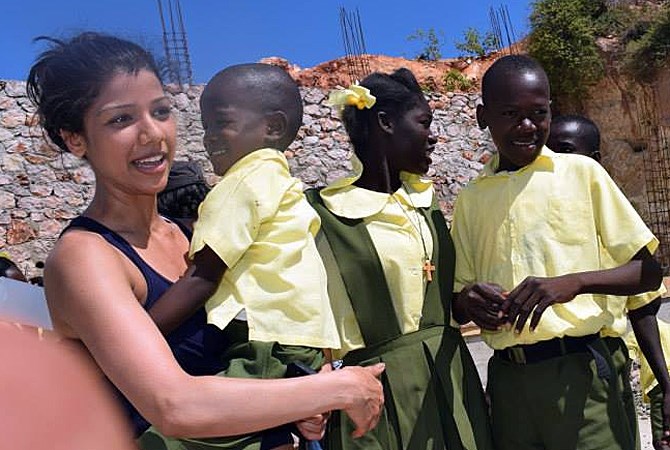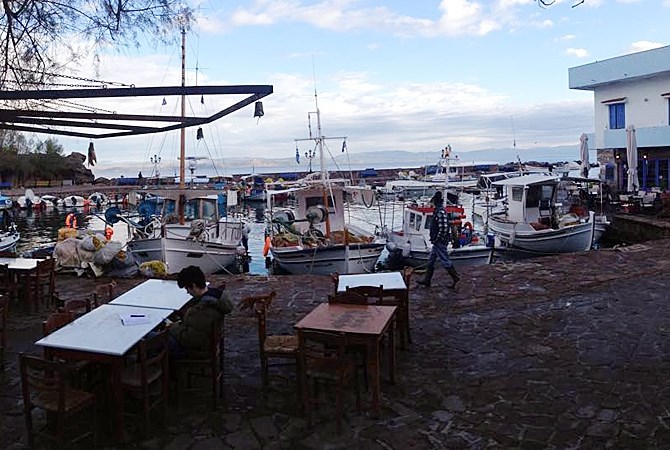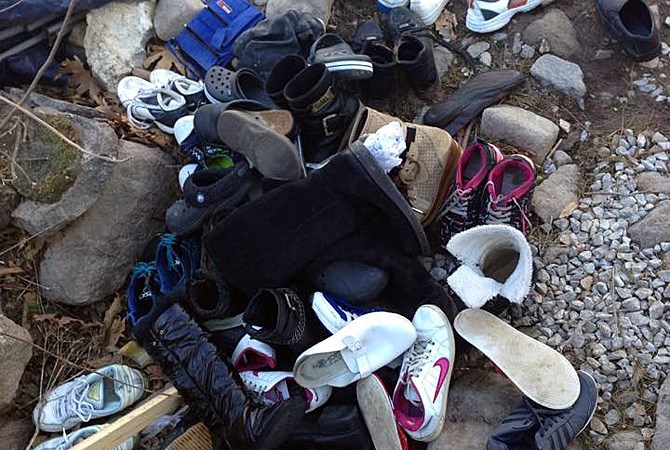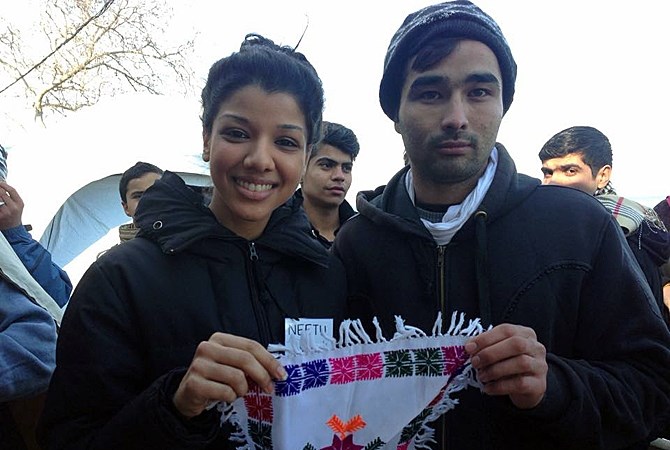
Neetu Garcha is in Lesvos, Greece helping with the ever-growing refugee crisis in the Middle East.
Image Credit: Contributed
January 15, 2016 - 8:00 PM
KELOWNA – Neetu Garcha has seen her share of human suffering.
As a TV reporter she has interviewed people on the worst days of their lives and she has volunteered in earthquake wracked Haiti last year and in 2012. But she was not prepared for what she's seen since arriving in Lesvos, Greece this week.
Garcha was born and raised in Penticton and now works as a news reporter for Global Okanagan. She has filled in at the anchor chair several times, but earlier this week she took a seat on a plane bound for the island of Lesvos, Greece. She will spend the next couple weeks helping take care of refugees who are making their way from various Middle Eastern countries, through Turkey, across the Aegean Sea and ultimately to Lesvos.
“You can’t prepare yourself for this,” she says. “These families with young toddlers, seniors, men on their own, women on their own, are in boats arriving at a beach and needing food. Some are hypothermic, some are fine.”

As many as 800 refugees a day come to Lesvos, Greece to escape economic and military strife in the Middle East.
Image Credit: Contributed
Garcha, who paid for her trip herself, says it’s not just refugees from Syria either. Since arriving three days ago she has helped people from Iraq, Iran, Pakistan, Bangledesh and elsewhere. They all have one thing in common, she says.
“On a good day it’s a two hour boat ride but it can take upwards of four hours,” she says. “We see a lot of rough stuff, parents who lost children. I’ve had women hand me their babies while they are getting themselves warmed up or dealing with dizziness. They have every reason in the world to have a negative attitude… but they are so happy and grateful.”
Garcha and the other volunteers start their day at around 7 a.m. She usually begins in the kitchen, which is the first stop for most of the refugees when they get off the boats.
“We say hello and welcome them, give them soup and chai and ask if they need medical attention. It’s important to be really polite because a lot of the smugglers don’t treat them very well.”
It’s the smugglers who have turned Lesvos into a sort of refugee port on the Aegean. They charge up to $2,000 per person and pack small dinghies with as many as 50 people. Drownings are not uncommon.
“There’s a system set up with smugglers and the NGO’s that will guide them further into Europe. It’s been a proven route for years.”
If Garcha isn’t working in the kitchen, she is on the women’s side helping find shoes and clothes for each refugee.
“You’ve got to go fast because they are cold and wet,” she says. “You find out their shoe size and clothing size and they change into dry clothes. Then they go get their babies and find their husbands.”

Garcha spends most of her day helping women find clean, dry clothes, food and water.
Image Credit: Contributed
She says between 7 a.m. and 11 a.m. is the busiest time, as that’s when refugee boats are washing up on shore. There is no shortage of work in the afternoons either however.
“That’s when you clean up,” she says.
Cleanup involves tidying the makeshift change rooms, restocking the kitchen and warehouse and washing and preparing the wet clothes for the refugees that will arrive the next day.
“It’s quite an emotionally testing experience and I’m only three days in,” she says. “I’ve come back to my room and cried every day… but I braced myself before coming on the trip. I knew that I would be on the front line of the largest migration of refugees since World War 2.”
Garcha says despite the constant parade of suffering she is seeing, there are moments every day that she will never forget.
Two brothers from Afghanistan who are only 18 and 22 told her how their mother had been killed by the Taliban and their father had to stay behind.
“These two brothers are on their own now and we just really connected,” Garcha says. “This one brother gave me a handkerchief and told me his mother gave it to him before she died. I didn’t want to take it but I could see in his eyes that it would hurt him if I refused. It just really got to me. That is something so sentimental and he gave it to me. It’s things like that that I’m seeing.”
She doesn't hesitate to recommend the experience to others.
“I have never experienced anything like this before," she says. "I have never felt such a rapid change in my mentality. I have never learned so much in such a short period of time. It restores your faith in humanity.”
Anyone interested in learning more about volunteering in Lesvos can visit this webpage or here to make a donation.

Neetu Garcha holds up a handkerchief given to her by one of two Afghani brothers she helped while volunteering in Lesvos, Greece.
Image Credit: Contributed
To contact the reporter for this story, email Adam Proskiw at aproskiw@infonews.ca or call 250-718-0428. To contact the editor, email mjones@infonews.ca or call 250-718-2724.
News from © iNFOnews, 2016